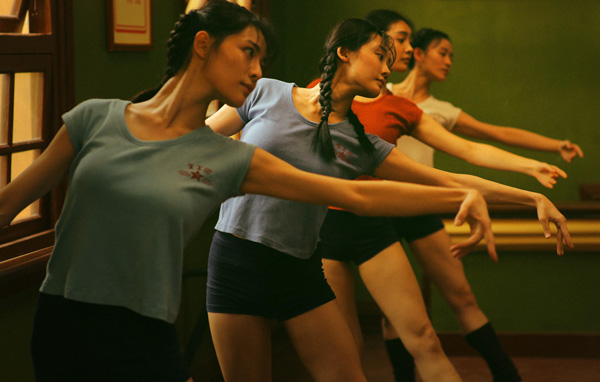 |
|
[Photo provided to China Daily] |
"When they passed by, the air smelled sweet," he told reporters in an earlier interview.
In the book, Feng also expressed his desire to shoot a film as including this romantic scene.
But his dream did not turn into reality until he met Yan Geling, the famous Chinese-American author, with similar military background.
Yan served in the Chinese army for 13 years as a ballet artist in a military art troupe. She has also penned tales for some of China's top filmmakers, such as The Flowers of War, directed by Zhang Yimou, and Siao Yu, helmed by Sylvia Chang.
After accepting Feng's invitation, she first wrote the novel for Youth, and then adapted it into a movie script.
From harboring a restrained crush, to secretly longing for pop culture, to the unprecedented transformation brought about by China's reform and opening-up, the tale is likely to strike a chord with most Chinese people born in the 1950s and '60s.
To recreate this history, director Feng spent 35 million yuan ($5.3 million) building film sets at a studio in South China's Hainan province to bring to life all the typical facilities that a military art troupe had access to in the 1970s. The movie sets brought various buildings back to life, from a canteen and dormitories to a training room.
Feng even required the cast members to train dance and live together in the complex for five months before the principal photography began, to help the actors immerse themselves in this fictional world.
"Cinema should allow different genres to coexist and give audiences many options. But films like Youth seem to have almost disappeared from Chinese screens. I believe Chinese people need such a movie and I hope they will enjoy it," says Feng.
Recent test screenings of the movie gained a rating of 7.8 of 10 on the popular film review site Douban.
While some viewers say they were moved by the heartbreaking scenes in the epic, others felt the storytelling was a bit loose and failed to focus more closely on the main protagonists.